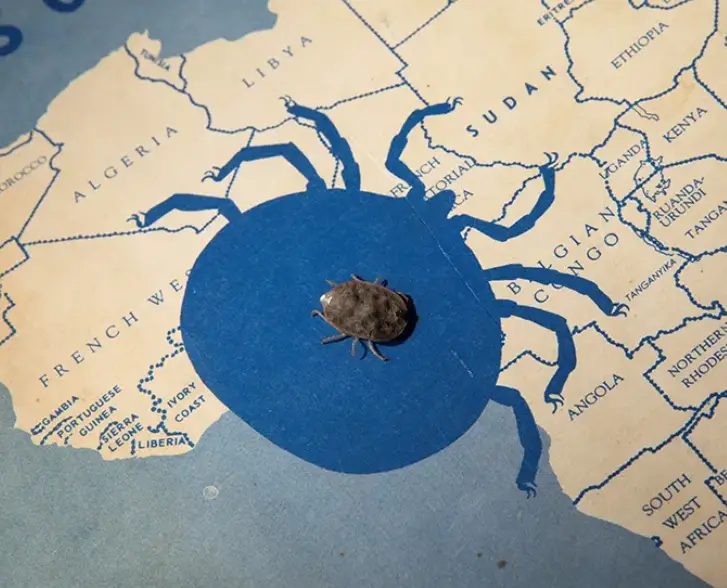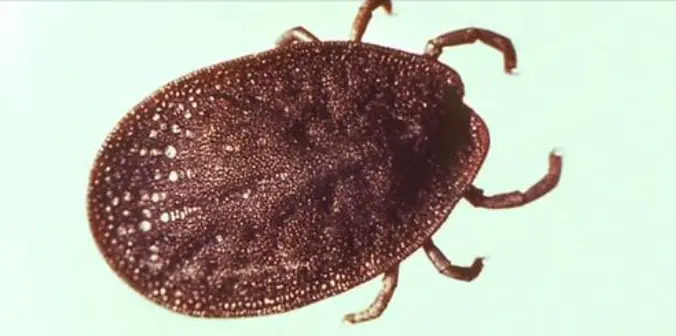Ticks are infamously known as the terrifying insects that contribute to Lyme Disease, and now a new study is shedding light on just how scary they can be in terms of their will to survive and spread disease.
According to a study published in December’s Journal of Medical Entomology, a group of African ticks has set a new record for their species by surviving 27 years in a laboratory setting.
Eight of those years were spent without any food according to the study, which focused on the Argas brumpti Neumann, a large, soft tick that typically inhabits drier areas of eastern and southern Africa.
“The longevity of these ticks is apparently a record for any species of tick.
“The delay in reproduction likely represents long-term storage of viable sperm, also apparently a record for any species of tick,” the study’s researchers wrote.

The study was comprised of six adult females and four adult males, during which the researchers were “absolutely baffled” the bugs lasted as long as they did. These particular ticks surpassed the average life cycle of an average tick, which is usually anywhere from six months to three years depending on their hosts.
Most ticks go through four life stages, but most die in the wild because they can’t find a host for their next feeding.
Winter tick infestation can take the lives of juvenile moose, although it is usually survivable for adults.
The life cycle of a tick often begins in June as each female lays several thousand eggs in soil.
They hatch a few months later. Larvae crawl up forest and meadow plants and wait for hosts, preferably members of the deer family including moose, so they can latch onto them.
Deer are better at grooming ticks off of them than moose, researchers stated.

Ticks feed on their hosts’ blood through winter before detaching and reproducing.
Males die, as do females if they fall onto snow-covered ground.
If the ground is dry, females survive and lay eggs to start the next generation of ticks.
But this life cycle still doesn’t explain how they survived for so long in the lab without food.
“I am always enthralled by the adaptations of organisms to their environment,” said lead researcher Julian Shepherd.
“In this case, a dry environment with virtually no access to water for long periods of time and a lifestyle that must wait for very long intervals of no food between encounters with host animals.”





